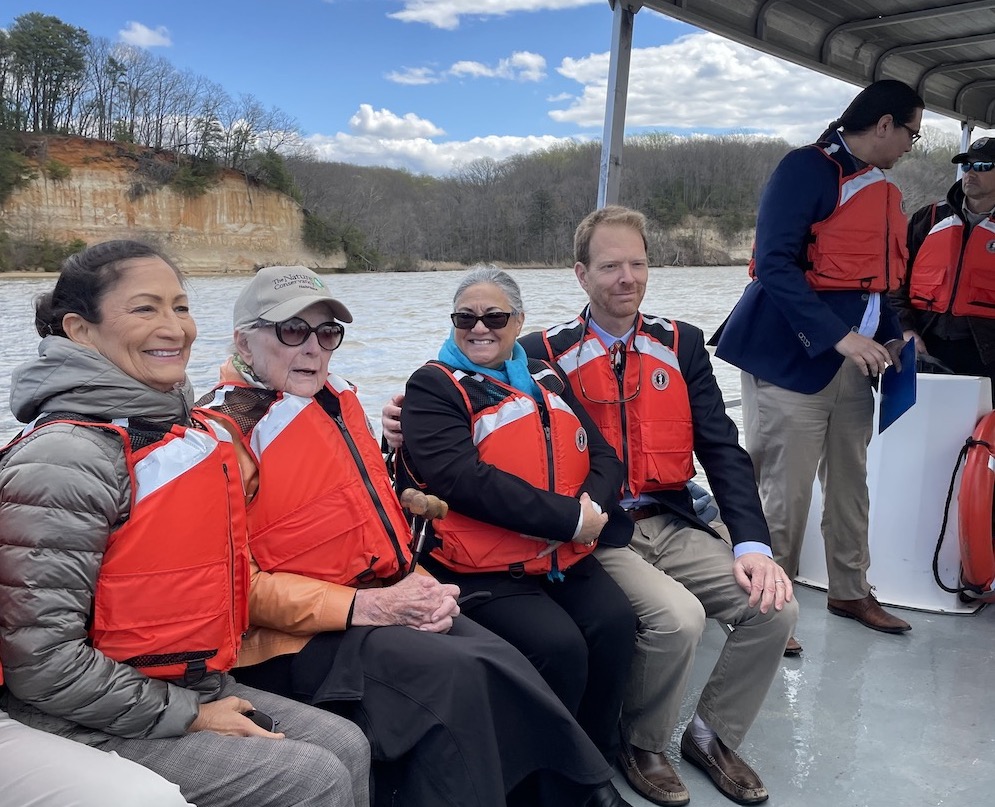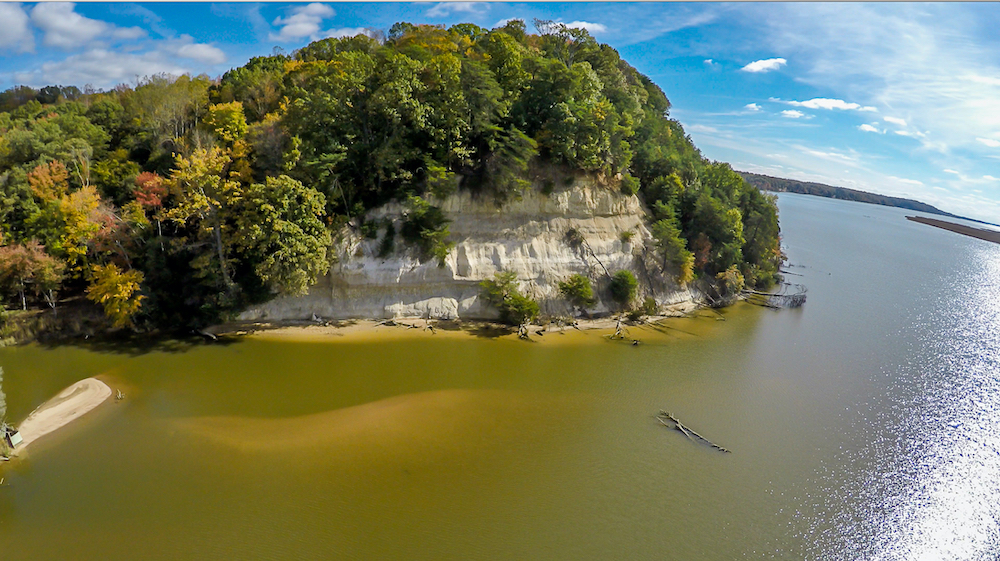
The Fones Cliffs, a 465-acre piece of sacred land along the Rappahannock River in northern Virginia, was reacquired by the Rappahannock Tribe on Friday.
April 2 (UPI) -- The Rappahannock Tribe has formally reacquired 465 acres its ancestral home at Fones Cliff, a sacred site located along the eastern side of the Rappahannock River in northern Virginia.
A four-mile stretch of white cliffs jutting up from the riverbank dominates the site, which officially changed stewardship on Friday. The area is also home to one of the largest bald eagle populations along the east coast.
"We have worked for many years to restore this sacred place to the Tribe. With eagles being prayer messengers, this area where they gather has always been a place of natural, cultural and spiritual importance," Rappahannock Tribe Chief Anne Richardson said in a press release from environmental nonprofit Chesapeake Conservancy.
The cliffs will be placed in trust with the Bureau of Indian Affairs. Their location -- inside the Rappahannock River Valley National Wildlife Refuge -- will remain publicly accessible.
The tribe plans to construct a 16-century village replica on the site for public education purposes, CNN reported. Tribal officials also plan to use the site to expand their "Return to the River" program, which teaches Rappahannock youth traditional tribal knowledge and practices.
English settlers forced the Rappahannock Tribe from their ancestral home in the 1660s.
Secretary of the Interior Deb Haaland and US Fish and Wildlife Service Director Martha Williams lauded the tribe's reacquisition of the land in a press release from the Department of the Interior on Friday.
"The Department is honored to join the Rappahannock Tribe in co-stewardship of this portion of their ancestral homeland. We look forward to drawing upon Tribal expertise and Indigenous knowledge in helping manage the area's wildlife and habitat," Haaland said.
"This historic reacquisition underscores how Tribes, private landowners, and other stakeholders all play a central role in this Administration's work to ensure our conservation efforts are locally led and support communities' health and well-being."

Secretary of the Interior Deb Haaland (pictured, far left) joined members of the Rappahannock Tribe and other dignitaries to celebrate the return of 465 acres of ancestral tribal lands. Also shown (from left): Dr. Carol Angle, Rappahannock Chief Anne Richardson, and Chesapeake Conservancy President & CEO Joel Dunn (Photo: Chesapeake Conservancy)
On Friday, the Rappahannock Tribe celebrated a historic win: the reacquisition of 465 acres of their ancestral homeland at Fones Cliffs, a sacred stretch of bluffs on the eastern side of the Rappahannock River in eastern Virginia.
“We have worked for many years to restore this sacred place to the Tribe. With eagles being prayer messengers, this area where they gather has always been a place of natural, cultural and spiritual importance,” Rappahannock Chief Anne Richardson said.
The federally recognized Rappahannock Tribe can trace its history in the area to before the 1600s, when English explorer John Smith arrived on their shores. The tribe lived in at least three villages on the Cliffs—Wecuppom, Matchopick and Pissacoac—before being chased away some 350 years ago.
“My people have lived here since the beginning,” Chief Richardson told an All Things Considered reporter earlier this year.
The land-back movement was made possible by a partnership between the National Fish and Wildlife Foundation, Chesapeake Conservancy, and the tribe itself. Fones Cliffs will be permanently owned by the tribe, and placed in trust with the Bureau of Indian Affairs.
The tribe called the news a huge win for both racial justice and conservation. Fones Cliffs is one of the most important sites for bald eagles on the east coast, as well as rare and threatened plant life.
The land will be publicly accessible and held with a permanent conservation easement conveyed to the U.S. Fish and Wildlife Service, according to a press release from the tribe.
 Fones Cliffs (Photo by Jeffrey Allenby for Chesapeake Conservancy)Secretary of the Interior Deb Haaland joined the tribe on Friday to celebrate their announcement in Chance, Virginia, today.
Fones Cliffs (Photo by Jeffrey Allenby for Chesapeake Conservancy)Secretary of the Interior Deb Haaland joined the tribe on Friday to celebrate their announcement in Chance, Virginia, today.
“The Department is honored to join the Rappahannock Tribe in co-stewardship of this portion of their ancestral homeland,” Haaland said. “This historic reacquisition underscores how tribes, private landowners and other stakeholders all play a central role in this administration’s work to ensure our conservation efforts are locally led and support communities’ health and well-being.”
The tribe plans to build walking trails along the river, and a replica of a 16th-century village where tribal members can educate the public about their history.
No comments:
Post a Comment